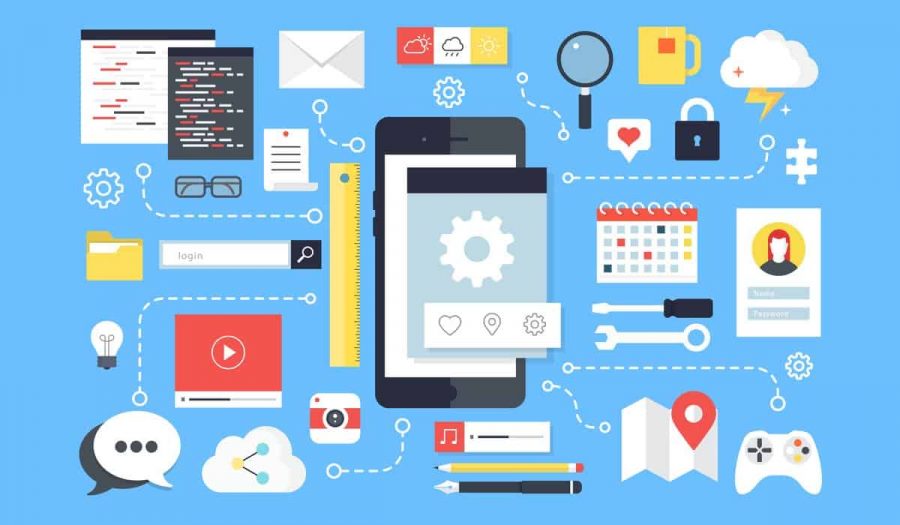In today’s fast-paced world, productivity apps have become essential tools for individuals and teams aiming to maximize efficiency. These apps deliver various features designed to streamline tasks, organize workflows, and enhance focus, making it easier to manage daily responsibilities. Popular apps like Trello and Asana help users stay organized by visualizing tasks and project timelines, while Notion combines note-taking and task management into one versatile platform.
Todoist and Microsoft To Do deliver simple yet effective task tracking, with built-in reminders and categorization options to help prioritize work. For those looking to improve focus, apps like Forest and Focus@Will use timed focus sessions and curated playlists to enhance concentration. Incorporating these tools into your routine can significantly boost your productivity, ensuring you stay on top of your commitments and achieve your goals more efficiently.
Why Productivity Apps Are Essential for Boosting Efficiency
Productivity apps are designed to simplify your life by providing tools to manage your time, tasks, and resources better. They can help you:
- Organize tasks: Keep track of deadlines and essential to-dos.
- Improve focus: Reduce distractions and stay on task.
- Automate processes: Save time on repetitive activities.
- Collaborate effectively: Work seamlessly with teams, even remotely.
Using the right apps can dramatically increase your productivity and achieve more in less time.
Top Productivity Apps to Boost Efficiency
Let’s dive into some of the top productivity apps that can make a real difference in your work and life.
1. Trello
Trello is a highly popular project management tool. It uses a board-and-card system to organize tasks, deadlines, and workflows. Trello helps you visualize your progress and stay on track with your projects. You can set up boards for different projects, add due dates, and collaborate with others in real time.
Best for: Organizing tasks, managing projects, team collaboration.
How it boosts efficiency: Trello’s intuitive design and flexibility allow you to effortlessly track multiple projects at once. You can prioritize tasks, create checklists, and delegate responsibilities all in one place.

2. Evernote
If you constantly jot down ideas or take notes during meetings, Evernote can help you stay organized. It’s one of the best apps for storing notes, links, photos, and documents. You can create notebooks for various categories, making it easy to find what you need.
Best for Note-taking, organizing ideas, and document storage.
How it boosts efficiency: Evernote helps you stay organized and never lose track of your thoughts or important information. With its search function, you can quickly find any note you’ve saved, saving time when looking for key details.
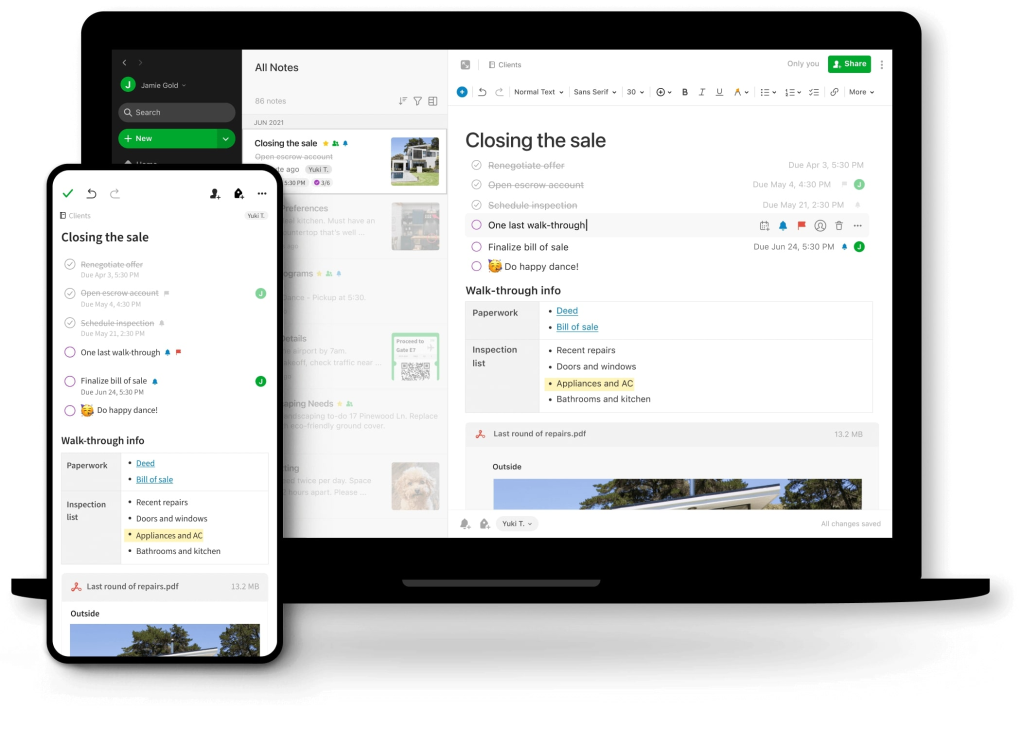
3. Forest
Forest is a game-changing productivity app for those struggling to stay focused. It helps you stay off your phone and focus on tasks by planting a virtual tree every time you start a concentrated session. If you leave the app to check social media, the tree dies.
Best for: Improving focus, managing time, reducing distractions.
How it boosts efficiency: Forest encourages you to stay on task by making the process fun. As you accumulate virtual trees, you’ll feel motivated to focus and avoid distractions, boosting your productivity.

4. Slack
Slack is a messaging platform that allows teams to communicate efficiently. It supports channels for various topics, direct messages, and integrations with other tools. If you’re working remotely or in the same office, Slack helps keep everyone connected and organized.
Best for: Team communication, project collaboration, real-time updates.
How it boosts efficiency: Slack simplifies team communication by consolidating all your messages, files, and updates into one place. With features like @mentions and quick replies, you can communicate faster and reduce the time spent in meetings.

5. RescueTime
RescueTime is an automatic time-tracking app that records how you spend your time on digital devices. It provides insights into where you’re spending too much time, allowing you to make better decisions about your work habits.
Best for: Time tracking, identifying productivity leaks, and improving work habits.
How it boosts efficiency: RescueTime gives detailed reports on your usage, helping you pinpoint time-wasting activities. Understanding your work patterns can optimize your schedule and reduce unnecessary distractions.
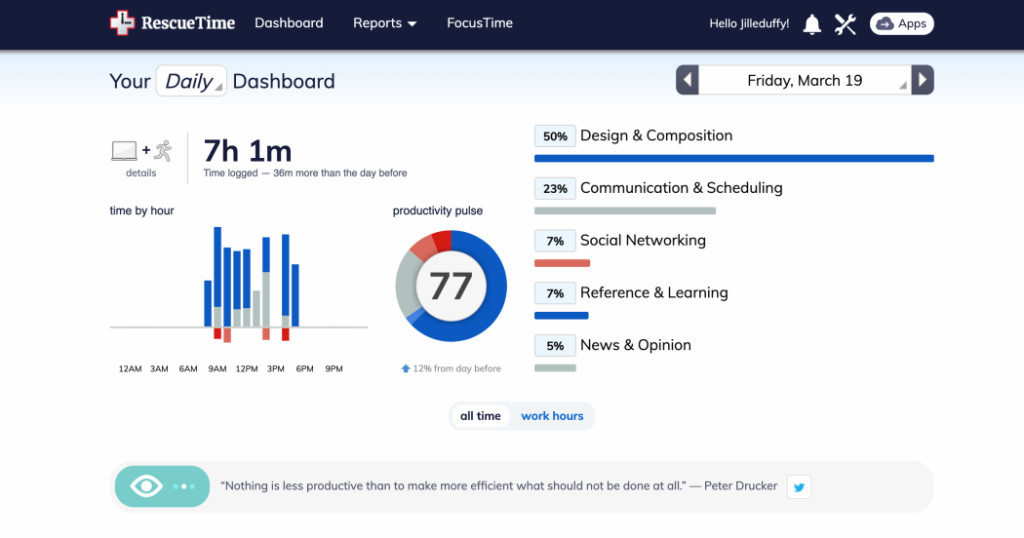
6. Asana
Asana is another project management tool, but it’s especially great for team-based projects. It allows you to create tasks, set deadlines, assign responsibilities, and track progress. You can integrate it with Slack, Google Drive, and Trello.
Best for: Team projects, task management, and deadline tracking.
How it boosts efficiency: Asana helps you break down large projects into smaller, manageable tasks. With its clear timeline view, you can easily track milestones and ensure everything is completed on time.
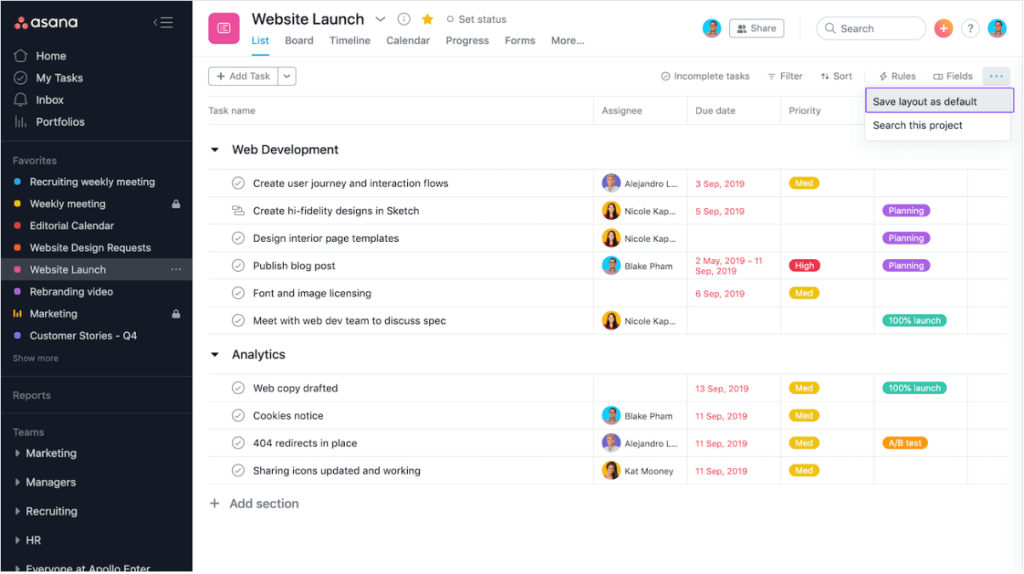
7. Notion
Notion combines notes, tasks, wikis, and databases in one platform. It’s an all-in-one workspace that allows you to write, plan, collaborate, and organize all in one place. Its flexibility means you can customize it to suit your workflow perfectly.
Best for Personal organization, knowledge management, and team collaboration.
How it boosts efficiency: With Notion, you can centralize all your information in one place. If you’re tracking goals, creating to-do lists, or collaborating with a team, Notion keeps everything organized and accessible.
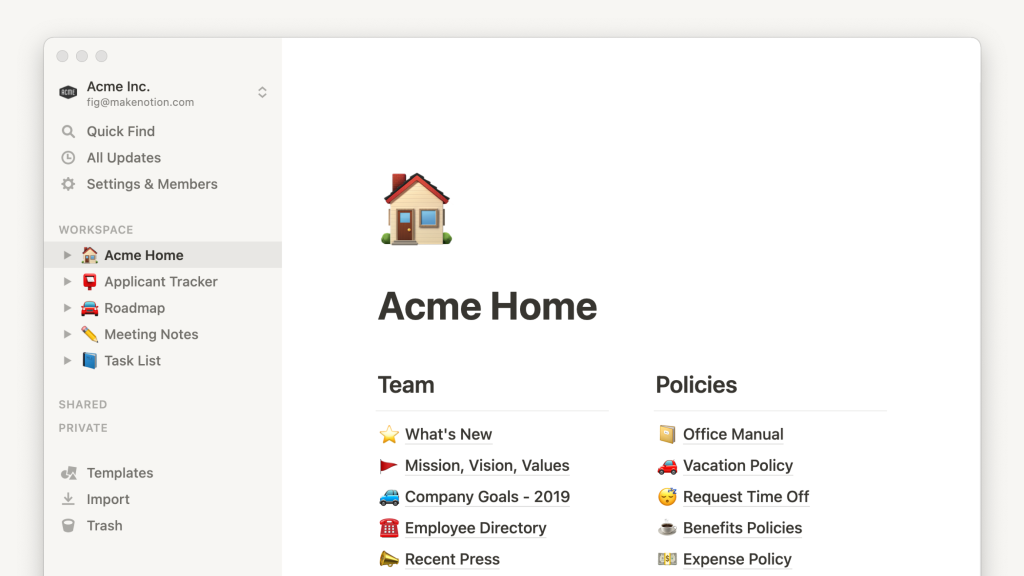
Best Practices for Maximizing the Use of Productivity Apps
While the best productivity apps can help improve your efficiency, using them effectively is important. Here are some best practices for maximizing your app usage:
1. Set Clear Goals
Before using any app, it’s essential to have clear goals. If you’re managing your daily tasks, collaborating with a team, or tracking time, setting specific objectives will help you choose the right app and use it efficiently.
2. Use Apps Together
Many productivity apps integrate. For example, you can connect Trello with Slack or Evernote with Google Drive. By linking your apps, you can streamline your workflow and reduce the time spent switching between different platforms.
3. Focus on One Task at a Time
Although apps like Slack and Trello encourage multitasking, focusing on one task at a time can help you get more done. Use apps like Forest to reduce distractions and focus on your most important task.
4. Regularly Review Your Workflow
As you use different apps, review how well your workflow is functioning. Are there any bottlenecks? Are certain apps not providing the value you hoped for? Regularly assessing your productivity tools can help you adjust and improve your process.
5. Leverage Automation
Many productivity apps show automation features. For example, you can use Zapier to connect different apps and automate repetitive tasks. This frees up time for more critical work and allows you to focus on high-priority tasks.
Conclusion
Boosting your efficiency doesn’t have to be complicated. By leveraging the best productivity apps, you can organize tasks, track time, improve focus, and collaborate better. Apps like Trello, Evernote, and Slack can help streamline your work, while tools like RescueTime and Forest can help you stay on track.
The key to using productivity apps effectively is understanding your needs and selecting the tools that best align with your goals. Integrating these tools into your daily routine can dramatically boost your productivity and allow you to get more done in less time.
Frequently Asked Questions (FAQs)
Q1: What are the best free productivity apps?
Some of the best free productivity apps include Trello, Asana, Evernote, Slack, and Google Keep. These apps deliver core features for free, making them perfect for personal use or small teams.
Q2: How do productivity apps improve efficiency?
Productivity apps help streamline tasks, reduce distractions, organize projects, and track time. Providing better task management, collaboration tools, and time tracking can save you time and boost your overall efficiency.
Q3: Can productivity apps be used for personal organization?
Yes, productivity apps like Notion, Evernote, and Todoist are designed for personal organization. They help you keep track of tasks, notes, and goals, making it easier to stay organized in both your personal and professional life.
Q4: What is the best productivity app for remote teams?
For remote teams, the best productivity apps include Slack for communication, Trello or Asana for project management, and Google Drive for file sharing. These apps help remote teams stay connected, collaborate efficiently, and track progress.
Q5: How can productivity apps help reduce distractions?
Apps like Forest and RescueTime help you stay focused by blocking distractions, tracking your time usage, and delivering insights into your productivity patterns. Forest, for example, rewards you with virtual trees for focused work sessions, encouraging you to stay off your phone.
Q6: Are productivity apps suitable for small businesses?
Yes, many productivity apps are ideal for small businesses. Tools like Asana, Trello, and Slack are affordable and scalable, making them perfect for small teams that need to manage projects, communicate effectively, and stay organized.
Q7: Do productivity apps work across multiple devices?
Most productivity apps, including Evernote, Google Keep, and Notion, sync across multiple devices. This allows you to access your tasks, notes, and projects on your phone, tablet, and computer, ensuring you stay organized no matter where you are.
Q8: How do I choose the right productivity app for my needs?
Choosing the right app depends on your specific needs. Trello or Asana might be the best options if you need task management. Evernote or Notion could be more suitable for note-taking. Consider the features, ease of use, and compatibility with other tools you use.
Q9: Can productivity apps help with time management?
Yes, apps like RescueTime and Toggl are excellent for time management. These apps track your activities and give you insights into how much time you’re spending on different tasks, helping you identify areas for improvement.
Q10: What are some tips for using productivity apps effectively?
- Set clear goals for what you want to achieve.
- Regularly review your tasks and progress.
- Automate repetitive tasks where possible.
- Integrate different apps to streamline your workflow.
- Limit distractions by using focus tools like Forest.
